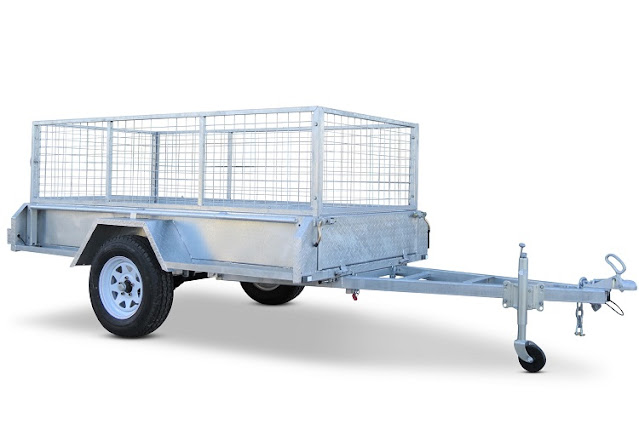What to Look for When Buying A Single Axle Car Trailer?
When it comes to buying a Single Axle Car Trailer, the first thing you should do is decide on what purpose it's going to serve. Is it for personal use or will you be using it as part of your business? Knowing this will help you narrow down your options and focus on the features that best suit your needs. The next thing to consider is how heavy your load will be.
This is because heavier loads require sturdier trailers and caravans with higher capacities than lighter ones. Finally, make sure that the vehicle that pulls your trailer can handle the load without causing any damage!
For What Purpose Do You Need A Single Axle Car Trailer?
Before you start shopping for a single axle car trailer, it's important to consider what you'll use the trailer for. For example, if you plan on towing your boat and other heavy-duty items around frequently, then there are certain features that will be more attractive than others. Here are some questions to ask yourself:
- What kind of purpose do I need my trailer to serve?
- How much weight do I need it to carry?
- How often will I be using this trailer?

What Is The Load Height Of The Trailer?
The load height is the distance from the ground to the top of the trailer. This measurement can vary depending on what you're loading onto your trailer. For example, if you have a medium-sized pickup truck and want to transport two motorcycles on your single axle car trailer, your load height will be higher than if you were transporting an ATV or motorcycle.
The standard height for a single axle car trailer is around 1.8 meters high (or 5 feet 9 inches). The standard height for double axle trailers is usually between 1.8 meters and 2.5 meters high (between 5 feet 9 inches and 8 feet 3 inches).
Which Type Of Car Do You Want To Tow?
The first thing to consider when buying a trailer is the type of car you want to tow. The general rule of thumb is that if you're towing a sedan, you need a single axle trailer. If it's a pickup truck or an SUV, then you'll need one with dual axles.
But don't worry—even if your car doesn't fall into this category, there are still ways to find out what kind of car could safely be towed by the trailer you want.
First off, getting the right size and weight capacity matters when choosing which kind of trailer would be best for your needs. Remember The heavier your car is, the heavier your trailer should be!
Most importantly though is knowing what types of vehicles can be towed on each particular type (single vs dual) so we've included some helpful links below based on common models like Honda Civics as well as more rugged pick-ups like Ford F150s (both available in 4x4 versions).
What Is Its Towing Capacity?
The towing capacity of a trailer is the maximum weight that it can carry. It’s determined by the gross weight of the trailer, axle load, and towing capacity of your vehicle. Usually, this information can be found on a sticker on your new trailer.
The vehicle's manufacturer will also specify a maximum allowable total weight for towing and hauling purposes so you'll want to make sure that your car is capable of handling whatever you plan on hauling with your new trailer.
Conclusion
The key to finding a good single axle car trailer is to make sure that it suits your needs. If you need a trailer for just small loads, then look for one that has a low deck height and can handle short distances.
On the other hand, if you want something with more capacity or longer distances, then choose one that has higher deck heights but still not too large overall dimensions so as not to cause problems when driving on roads or parking lots.




Comments
Post a Comment